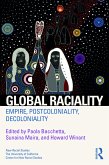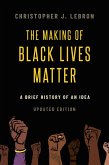West argues that Washington's analysis was seen as offering a "solution" to the problem of racial oppression in a nation professing its belief in democracy. That solution was the idea of "race relations." In practice, this theory buttressed segregation by supposing that African Americans could prosper within Jim Crow's walls and without the normal levers by which other Americans pursued their interests. Washington did not, West contends, imagine a way to perfect democracy and an end to the segregationist policies of southern states. Instead, he offered an ideology that would obscure the injustices of segregation and preserve some measure of racial peace.
White Americans, by embracing Washington's views, could comfortably find a way out of the moral and political contradictions raised by the existence of segregation in a supposedly democratic society. This was (and is) Washington's legacy: a form of analysis, at once obvious and concealed, that continues to prohibit the realization of a truly democratic politics.
Dieser Download kann aus rechtlichen Gründen nur mit Rechnungsadresse in A, B, BG, CY, CZ, D, DK, EW, E, FIN, F, GR, HR, H, IRL, I, LT, L, LR, M, NL, PL, P, R, S, SLO, SK ausgeliefert werden.









